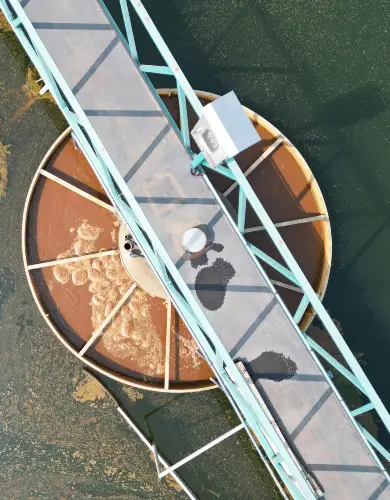Business energy meters | Everything you need to know
A business energy meter is a device that’s essential to ensuring your business is accurately paying for the electricity and gas you are using.
This guide explores the different types of business energy meters and answers your frequently asked questions.
The different types of business energy meters
Here’s a breakdown of the different energy meters your business may use. Ensure you have the correct meter installed for your business type, as this will save your business money in the long run.
Single-rate meters
Single-rate meters are the most common energy meters used by businesses. A single-rate meter is essentially a meter where you pay the same kWh rate no matter what time of the day it is.
To tell if you have a standard single-rate meter installed, check an energy bill to see if it has a 21 digit ‘S’ number (MPAN) that starts with ‘03’.
Two-rate meters
These meters are set to charge at two different rates depending on the time of use. Off-peak rates let you take advantage of cheaper electricity at night while paying higher rates per kWh at peak times.
The three types of two-rate meters are as follows:
- Economy 7: This offers lower rates in a 7-hour space classed as “off-peak”.
- Economy 10: This offers lower rates in a 10-hour space classed as “off-peak”.
- Evening and Weekend: This offers lower rates through the evening and on weekends. What’s classed as evenings is decided by each supplier.
Note: Evening and Weekend meters are more suited to restaurants, pubs and bars where there is energy usage outside the normal working day.
Three-rate meters
These work similarly to an Economy 7/10 and a Weekend and Night meter.
These apply peak rates in the daytime, a lower rate at the weekends and evenings and the cheapest rate is then applied during the nighttime hours.
Three-rate meters are suited for bars, restaurants, pubs, and other industries where most activity is outside peak hours.
Half-hourly meters
Half-hourly meters (HH) take readings every 30 minutes and then transmit these readings directly to your supplier. You can check if you have a half-hourly meter by reviewing your latest energy bill. If the S number starts with 00, this indicates your business is using a half-hourly meter.
As part of the P272, businesses that use 100kW or more of electricity in any 30-minute period must have a half-hourly meter installed.
Also, businesses using 70kWh or more of electricity every 30 minutes can qualify for a half-hourly meter if they want to. Opting for a half-hourly meter allows your business energy supplier to accurately bill you for how much energy you’ve consumed. Half-hourly meters are sometimes also called maximum demand meters as they allow suppliers to levy maximum demand charges.
To help with your consumption assessment, check out our complete guide to calculating business energy usage.
AMR
AMR stands for “automated meter reading”. AMR meters are used by large businesses that don’t hit the energy consumption required for half-hourly meters. AMR does have the capability to record half-hourly meter readings if needed.
A business that uses an AMR meter will pay a provider for the service; these charges cover the cost of the meter and the transmission network. Business electricity suppliers sometimes pass the AMR charges directly onto your energy bill.
Smart meters
Smart meters allow for accurate billing. They submit your meter readings regularly to your business energy supplier, allowing you to pay exactly for what you’ve used.
Smart meters display precisely how much you’re using with a live dashboard. This is a great way to spot potential leaks immediately or unusual spikes in energy usage.
For further reading, here’s our full article on smart meters for business.
Multi-site meters
Multi-site meters are perfect for businesses that have more than one business property. A multi-site meter is not a physical device but is a way of combining all of your business energy tariffs from each site into one singular energy tariff by one supplier.
Do I need a new energy meter installed when moving business premises?
When moving to new premises, you will not need a new meter, nor will you need to relocate your current meter.
When you move into your new premises, they will already have a meter installed that your current/new supplier will continue to use.
The only reason you’ll need to change it is if the meter installed is the wrong fit for your business.
For example, if your business is likely to require a power capacity exceeding 100kW, legally, you need a half-hourly meter. If there’s not one currently installed on the property, you’ll need to get one requested from your business energy supplier.
Check out our full article on new business energy connections.
Does my energy meter have my MPRN and MPAN number on it?
Your energy meters will typically not have an MPRN or MPAN number displayed on them. The MPAN is the number for the supply point of your electricity. The MPRN is the supply point number for your gas supply.
To find your MPRN:
You can find your MPRN on your business gas bill. It should sit under the “Details of Charges” section. It’s displayed as an 11 digit number.
If you can’t find one of your business gas bills, you can also search it online with your business postcode on Find My Supplier.
To find your MPAN:
You can find your MPAN on your latest energy bill. The MPAN is also called the “S Number” or a “supply number”. The MPAN is a 21-digit number that begins with an S – to find it, you will have to review a past electricity bill.
The MPAN is usually found at the top of your energy bill.
Are energy meters free for businesses?
It completely depends on your business energy supplier and your type of business energy meter. But most of the time, they will be included within your business energy standing charges.
However, some suppliers will charge you to upgrade to a smart meter or charge you a fee for the data transmission. This will be in addition to your usual business gas prices and business electricity rates.
What’s the best meter for large businesses?
This depends on a few factors, principally how much electricity and gas you use each day.
If you regularly use over 100kW every 30 minutes, a half-hourly meter will be optimal. For anything less than this, we would recommend a smart meter.
These meters for each scenario will allow you to improve your business energy efficiency and ultimately save you time and money on your energy resources.
For further information, here’s a link to our article on large business energy.
Are you looking to switch your business energy supplier?
Use our business energy comparison tool to compare business energy suppliers in minutes. Click here if you’re looking to only compare business gas prices.
Alternatively, you can use our business water rates comparison tool to compare business water rates.

